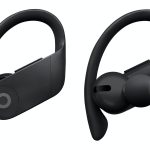Apple’s new HomePod (2023) is, at first glance, a dead ringer for the original HomePod, which launched in 2018. In the meantime, Apple launched the HomePod mini, which was the company’s only speaker for nearly two years, as the original HomePod was discontinued in early 2021.
The new HomePod and the HomePod mini share a similar set of features, though at very different price points. So should you go for one HomePod, or buy two HomePods mini instead (leaving you with a hundred bucks to spare)? Let’s dive in.
Cute, small and colorful versus big and beautiful
Just like the original, the new HomePod has a cylindrical shape, and is dressed in an interwoven mesh fabric, with volume controls, and an animated touch display on top, which lights up when you invoke Siri. The HomePod mini is smaller, cuter, and way lighter (5.16 pounds vs. 0.76 pounds), but its basic features are the same: Mesh fabric cover, touch display and volume controls on top. It is way more colorful, though, as you can get it in Space Gray, Blue, White, Yellow, and Orange, whereas the HomePod only comes in Midnight and White colors.
Credit: Stan Schroeder/Mashable
It’s worth noting that, due to the sheer size difference, the HomePod is a far more striking and beautiful object to place in your home. Mini is almost inconsequential; I’ve owned it for a year, and over time it got pushed behind the TV by other objects such as fruit baskets and candles. The HomePod, especially if you buy two, is something that you definitely want to be seen.
The same set of features
In terms of features, the HomePod and the HomePod mini are remarkably similar. They both support Bluetooth 5 and Wi-Fi 802.11n connectivity, come with an accelerometer as well as humidity and temperature sensors, and have sound recognition capabilities.
Despite the fact that the HomePod mini has an older chip (Apple’s S5 vs. HomePod’s S7), it’s hard to point at a feature that the HomePod mini doesn’t have. It seamlessly integrates with other Apple devices, runs Siri just the same, and can be paired with another mini to get stereo sound. It even has four microphones listening for input, just like its bigger, younger brother. If you want to nitpick, the HomePod has a detachable power cable, whereas the HomePod mini has a non-detachable USB-C cable which has to be plugged into an external, 20W power adapter. Neither speaker is designed to be moved around too often, so once you set them up, you probably won’t notice.
Credit: Stan Schroeder/Mashable
The similarities stop at the way these two speakers produce sound. The HomePod has an array of five tweeters firing in all directions, coupled with a 4-inch woofer. The HomePod mini has an entirely different design, with a single speaker and two passive radiators, which improve its bass response, but cannot get it to sound as deep as the new HomePod.
HomePod likes pop, HomePod mini likes rock
I’ve compared the HomePod to the HomePod mini side-by-side. When you listen to each speaker separately, they sound similar, with lots of bass and a surprising airiness to the sound. But when you actually compare them directly, switching from one to the other at same volume, the difference is astounding. Switching from the smaller to the bigger speaker is like listening to a concert through a closed door, and then opening it and stepping inside.
The HomePod is louder and has more bass, but it also has tons more clarity and definition across the entire frequency range. That’s not to say the HomePod mini sounds bad; it just cannot hold a candle to the bigger speaker.
The difference is most pronounced when reproducing bassy pop and hip hop, like something from Rosalia or Drake. Interestingly, even though the HomePod still sounds better, the difference is much smaller when listening to rock, like Queens of the Stone Age or All Them Witches. The HomePod offers more clarity, but the HomePod mini has a better sound mix, with the instruments nicely tied together, the bass and the distorted guitars happily producing a punchy, deep sound. In contrast, the HomePod puts too much treble in the mix. I’ve said this in my HomePod review, and I’ll repeat it here: It’s a pity that Apple doesn’t offer any sort of equalizer for the HomePods, as they could both benefit from some fine tuning.
The real question for prospective buyers, I think, is whether to buy two HomePods mini for $198 or one HomePod for $299. Adding another speaker to the mix gives you stereo and vastly improves the overall sound. Given that the feature list between the HomePod and HomePod mini is practically identical, going for two minis is a good cost-conscious option. Of course, if money is no object, go for two HomePods; doubling down does wonders for the sound and makes the speakers a great option for home cinema audio.







